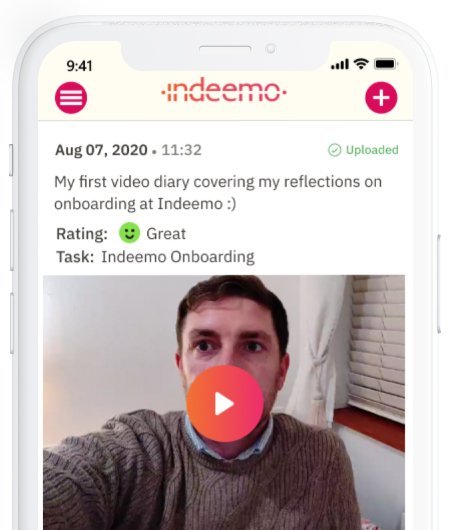Understanding Employee Experience: Exploring Alternative Research Methodologies
In the quest to understand and optimise the employee experience, organisations are constantly seeking innovative research methodologies. Traditional qualitative research methods have provided valuable insights, but advancements in technology have opened up alternative avenues for capturing employee experiences in real-time.
This blog explores alternative qualitative research methodologies, including video diaries, ecological momentary assessment (EMA), and participatory action research, that enable organisations to gain a deeper understanding of employee experiences in the moment.
The Power of Qualitative Research in Employee Experience
Qualitative research plays a vital role in uncovering the subjective aspects of employee experience, allowing organisations to delve into employees' thoughts, emotions, and perceptions. Methods like interviews, focus groups, and observations provide rich insights but rely on participants' recollections, which may introduce biases. Alternative research methodologies offer ways to overcome these limitations.
Video Diaries: Revealing Real-Time Employee Experiences
Video diaries have emerged as a powerful alternative qualitative research tool for capturing employee experiences as they unfold. By equipping employees with the means to record their daily work routines, challenges, and achievements, organisations gain unfiltered glimpses into their workforce's lives. Video diaries provide authentic portrayals, enabling researchers to identify patterns, uncover hidden issues, and understand the impact of various factors on job satisfaction. Visual cues and non-verbal communication captured in video diaries add depth to the collected data.
Ecological Momentary Assessment (EMA): Capturing In-the-Moment Experiences
Ecological Momentary Assessment (EMA) takes alternative qualitative research to the next level by capturing real-time employee experiences through periodic assessments. EMA leverages mobile devices, wearables, or web-based platforms to collect data at multiple points throughout the day. By prompting employees to provide brief reports on their current thoughts, emotions, and activities, researchers gain insights into the immediate context surrounding employees' experiences. EMA enables exploration of fluctuations in mood, productivity, and engagement, offering a holistic view of the employee experience over time.
Indeemo User Diary Tool
Participatory Action Research: Engaging Employees in Co-Creation
Participatory action research (PAR) involves engaging employees as active participants in the research process. It empowers employees to contribute their insights, experiences, and perspectives to shape research outcomes and drive positive changes. PAR fosters collaboration, co-creation, and collective decision-making, ensuring that employee voices are heard and respected. By involving employees directly, PAR enhances the validity and relevance of research findings, leading to actionable insights that reflect the lived experiences of the workforce.
Advantages and Considerations of Alternative Research Methodologies
Enhanced authenticity
Video diaries, EMA, and PAR capture experiences in real-time, reducing reliance on memory and enhancing authenticity.
Rich data
These methodologies provide a wealth of data, including visual and textual information, offering a comprehensive understanding of employee experiences.
Contextual insights
By examining employees' experiences within their natural work environment, organisations gain a nuanced understanding of the factors influencing their well-being and engagement.
Ethical considerations
Implementing alternative research methodologies requires careful consideration of privacy, consent, and data security to ensure employee trust and compliance with legal frameworks.
Leveraging Findings to Improve Employee Experience
Once the data from alternative research methodologies is collected, organisations can leverage the insights to make informed decisions and drive positive changes in the employee experience. Identifying pain points and strengths can guide interventions to enhance work processes, promote well-being initiatives, and optimise leadership strategies.
As organisations strive to create a thriving work environment, exploring alternative research methodologies becomes crucial. Video diaries, ecological momentary assessment, and participatory action research offer innovative ways to capture employee experiences in the moment, providing valuable insights into the daily lives, challenges, and motivations of employees.
By embracing these alternative research methods, organisations can uncover hidden patterns, identify areas for improvement, foster collaboration, and empower employees to co-create meaningful changes, ultimately leading to a more engaged and satisfied workforce.
Let us support your employee experience research
We’ve supported hundreds of employee experience research projects covering everything from mapping the employee onboarding journey to understanding the day in the life experience of remote workers to diary studies of communication tools used by employees in their everyday jobs.
If you’d like to discuss a specific employee experience research project or are just curious to learn more, get in touch now.







